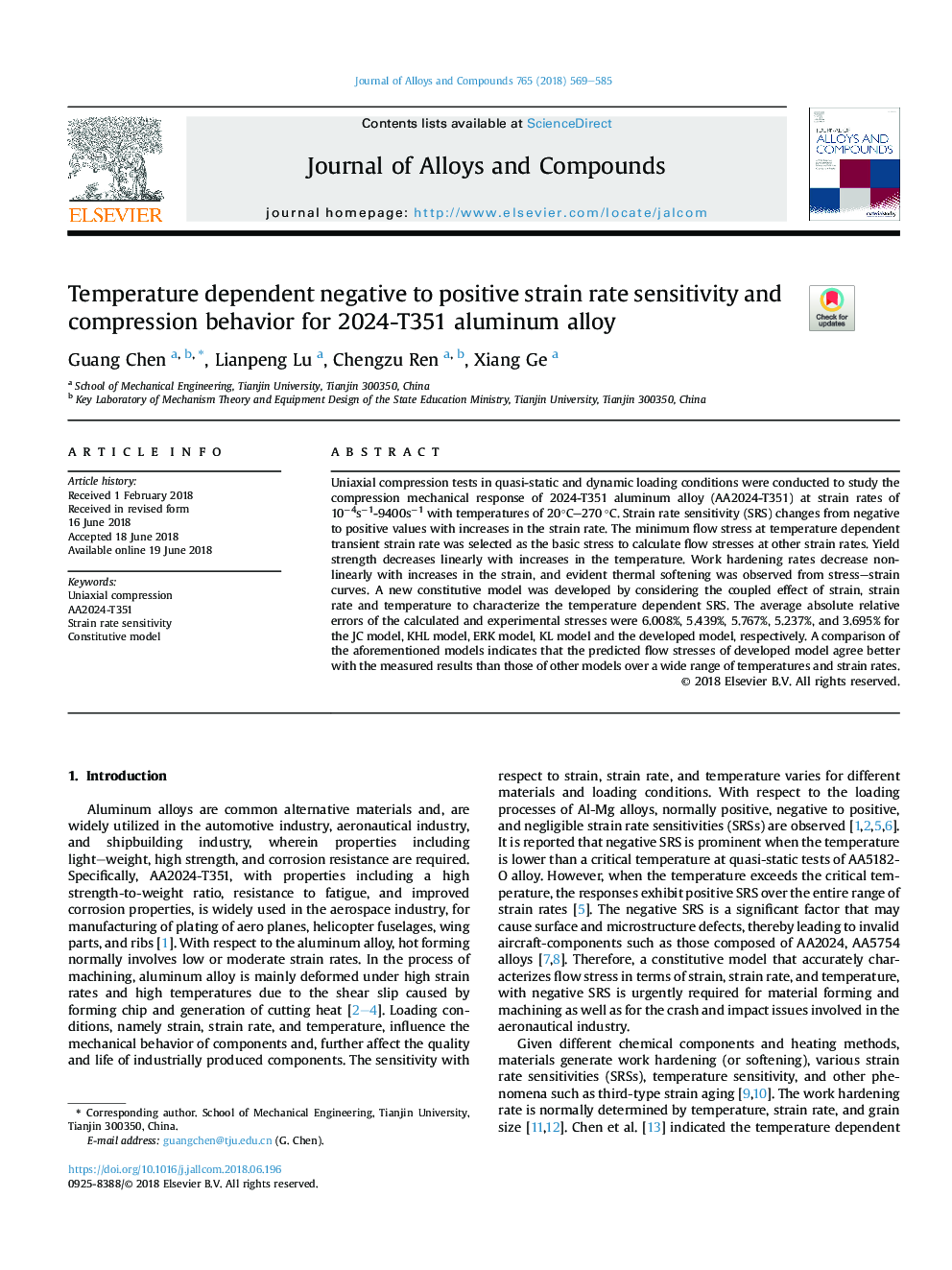| Article ID | Journal | Published Year | Pages | File Type |
|---|---|---|---|---|
| 7990555 | Journal of Alloys and Compounds | 2018 | 17 Pages |
Abstract
Uniaxial compression tests in quasi-static and dynamic loading conditions were conducted to study the compression mechanical response of 2024-T351 aluminum alloy (AA2024-T351) at strain rates of 10â4sâ1-9400sâ1 with temperatures of 20°C-270â¯Â°C. Strain rate sensitivity (SRS) changes from negative to positive values with increases in the strain rate. The minimum flow stress at temperature dependent transient strain rate was selected as the basic stress to calculate flow stresses at other strain rates. Yield strength decreases linearly with increases in the temperature. Work hardening rates decrease nonlinearly with increases in the strain, and evident thermal softening was observed from stress-strain curves. A new constitutive model was developed by considering the coupled effect of strain, strain rate and temperature to characterize the temperature dependent SRS. The average absolute relative errors of the calculated and experimental stresses were 6.008%, 5.439%, 5.767%, 5.237%, and 3.695% for the JC model, KHL model, ERK model, KL model and the developed model, respectively. A comparison of the aforementioned models indicates that the predicted flow stresses of developed model agree better with the measured results than those of other models over a wide range of temperatures and strain rates.
Related Topics
Physical Sciences and Engineering
Materials Science
Metals and Alloys
Authors
Guang Chen, Lianpeng Lu, Chengzu Ren, Xiang Ge,
